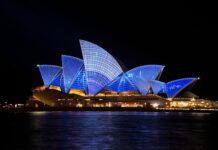By Harsimran Julka
Am sitting with Sean Qian, cofounder and Chief Operating Officer of Collective Campus, one of Melbourne’s centrally located collaborative workspace and accelerator.
“Fake it till you make it,” Sean tells me how he survives failures and downturns on a daily basis in a startup journey.
“Failure and rejection is an inherent part of a startup journey and thus developing resilience is an important part of the job,” he gives tips to budding entrepreneurs.
“Of course, with every rejection you should become better as it gives you a chance to improve,” he adds.
Sean launched Collective Campus in 2013, when very few such spaces were around in Melbourne. Now, the city boasts of over 173 co-working spaces including YBF, WeWork, Inspire9 and TheCluster.
“We decided long back that co-working is not the only business we wanted to be in. That’s why we branched out in the startup acceleration space,” Sean adds.
Now Sean runs various vertical focused accelerator programs inside Collective Campus including Legal Circle – an accelerator focused on legal startups incorporating all about compliance.
The other one is called Village Roadshow which focuses on VR and AR programs and then there is CharterHall – an acceleration program that focuses on property-tech.
“We are also planning to launch one in insurance space. The accelerator programs have helped us to partner with other collaborative workspaces and not see them as competition anymore. It has developed a synergy for us with other startups in the network,” Sean tells us.

A Global Mindset from Day Zero.
A large number of startups apply to the Collective Campus accelerators. “However we select only the ones that have a global mindset and target market from day one,” Sean adds.
The accelerators connect startups to the corporates and make them market ready.
Melbourne is host to a large number of global startups that include offices of Slack, Zendesk, Envato and others. “Being mid-way between US and Asia, Australia has an added advantage. However Aussie startups should focus on Asia and particularly SE Asia, as the next big market,” Sean adds.
Walking the talk, Sean has opened a branch of Collective Campus in Singapore, via tie-ups with other co-working spaces.
“We definitely believe in the idea of an Asian century, and startups from Australia have an added advantage,” he adds.












